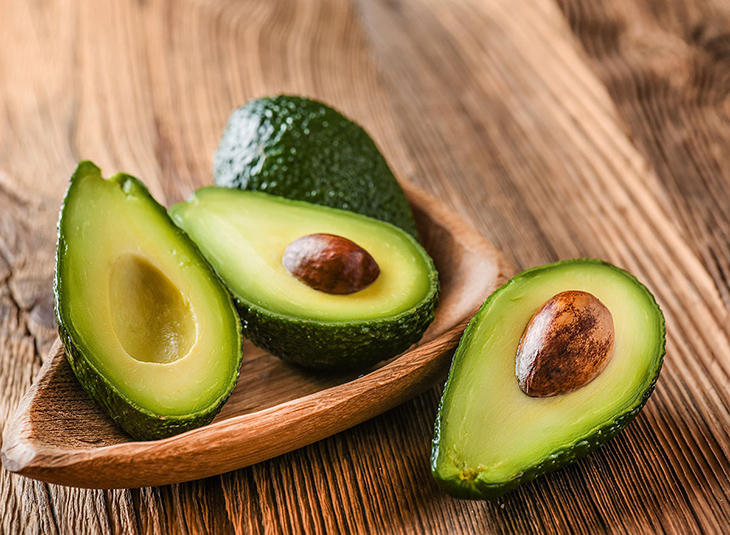There’s a new study that suggests how eating around 2 servings of avocado each week may lower your risk of suffering from a cardiovascular disease. While the study is still in its teething stages, the findings they’ve recently come up with look promising. This may give those who are prone to such disease hope that there’s a perfect way to prevent future health problems that they may encounter.

Eating two avocados on a daily basis may help reduce the risk of heart attacks. This serves as a good substitute to fatty foods such as butter, cheese, or bacon. A new study suggests that avocados are the much healthier option, and they’re just as filling.
The researchers of the study discovered this when they followed 68,786 women and 41,710 men who completed dietary questionnaires every four years. This was done over the course of three decades. No one had a history heart disease or stroke when they first joined and by the end of the follow-up period, around 11 percent of the women and 16 percent of the men had gone through or had died from a heart attack or stroke.
Those who consumed at least two servings of avocado each week, or what is roughly a whole avocado, were 21 percent less likely to suffer from a heart attack. They compared this to those who never or rarely ate it. This was what researchers reported in the Journal of the American Heart Association. On the other hand, avocados didn’t seem to have an impact on the risk of stroke.
“Although no one food is the solution to routinely eating a healthy diet, this study is evidence that avocados have possible health benefits,” Cheryl Anderson, PhD, MPH, a professor and dean of the Herbert Wertheim School of Public Health and Human Longevity Science at University of California San Diego, shared. She was asked to make a statement about this matter.
“This is promising because it is a food item that is popular, accessible, desirable, and easy to include in meals eaten by many Americans at home and in restaurants,” Dr. Anderson also said. She also serves as chair of the American Heart Association (AHA) Council on Epidemiology and Prevention.
Many experts believe that avocados may be the most beneficial as part of a heart-healthy Mediterranean diet. That’s because the meals are oftentimes rich in fruits and vegetables. Anderson shared the fact although she wasn’t a part of the study that was recently made. The diet typically requires the consumption of whole grains, legumes, nuts, and seeds. The dieters also use a lot of olive oil as a source of the healthy kind of fat. Included here would be a modest amount of protein that comes from dairy, eggs, fish, and poultry. As for red and processed meat, the dieters are asked to avoid these as much as possible.
Health experts often encourage that you replace half a serving a day of margarine, butter, egg, yogurt, cheese, or processed meats such as bacon. As for the number one choice, that would be avocado. They say that this simple fruit may help lower the likelihood of cardiovascular disease events such as heart attacks. The numbers could be as much as 16 to 22 percent, as the study estimated. On the other hand, they didn’t explicitly state the outright benefits of replacing avocado for a half serving of nuts, olive oil, or other plant-based oils that are available in the market. When the study was conducted in the past 30 years, they saw that the average weekly avocado consumption doubled. It went from 0.1 to 0.2 weekly servings for women and from 0.2 to 0.4 servings for men.
Like most studies, this also comes with a limitation. The participants involved had all worked in healthcare. They were mostly nurses and had been white. This could also mean that the results for future studies could possibly be different for those that come from other racial or ethnic backgrounds, or for those with different career paths.
It also must be noted that the study wasn’t designed to prove whether or how avocados might help in improving heart health. A previous research, published in April 2018 in The American Journal of Clinical Nutrition had linked avocado consumption to higher levels of “good” cholesterol, and this, in turn, helps in keeping the heart arteries healthy. Good cholesterol cleans the heart of fats and debris that can accumulate and lead to an attack.
As for this latest study, they provide a glimpse on new evidence. It points out how a diet rich in plant-based unsaturated fats such as the ones available in avocados can help prevent heart attacks. The lead study author Lorena Pacheco, PhD, MPH, a registered dietician-nutritionist and nutrition researcher at the Harvard T.H. Chan School of Public Health in Boston, said when she was asked to elaborate on what they’ve done.
As for the takeaway for patients who want to know more about this, and for basically those who are trying to live better and healthier lives, a heart-healthy diet means that they need to “replace certain spreads and saturated fat-containing foods, such as cheese and processed meats, with avocado,” Dr. Pacheco explained.



